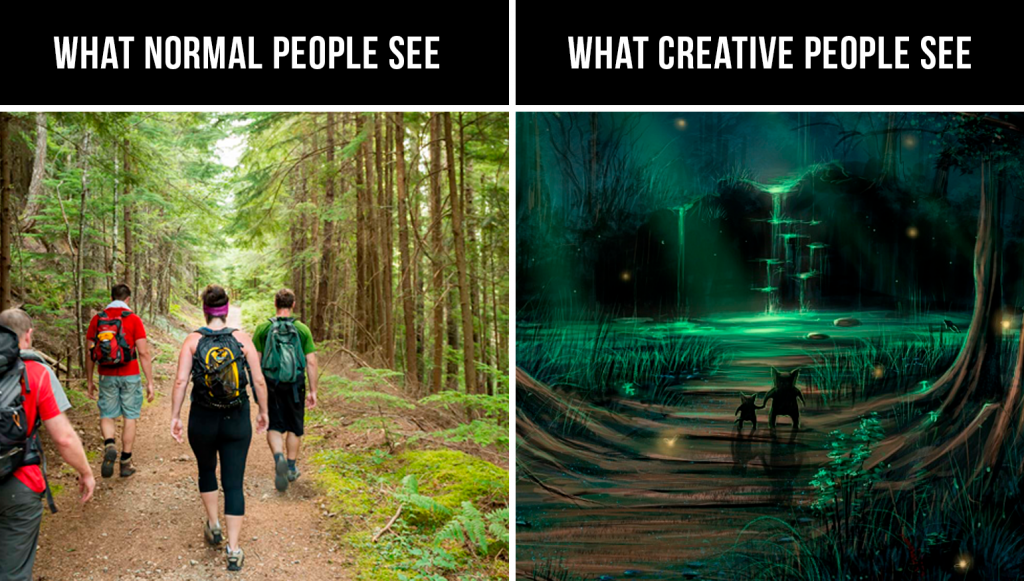3 Things You Are Most Likely to be When You’re Creative

2. You’re more likely to daydream

It has always been an adamant point when people tell you that you do your best work when your mind is wandering. And science found a way to prove that. As neuroscientists now know, and was conclusively shown in 2009, it’s when our minds wander that our brains do their best work.
A daydream is that fountain spurting, spilling strange new thoughts into the stream of consciousness. And these spurts turn out to be surprisingly useful. A paper in Psychological Science led by Benjamin Baird and Jonathan Schooler at the University of California at Santa Barbara helps explain why. The experiment itself was simple: a hundred and forty-five undergraduate students were given a standard test of creativity known as an “unusual use” task, in which they had two minutes to list as many uses as possible for mundane objects such as toothpicks, bricks, and clothes hangers.
Subjects were then randomly assigned to one of four different conditions. In three of those conditions, participants were given a twelve-minute break that entailed either: resting in a quiet room, performing a difficult short-term memory task, or doing something so boring that it would elicit mind-wandering. In a final control condition, participants were given no break at all. Finally, all subjects were given another round of creative tests, including the unusual-use tasks they had worked on only a few minutes before.
Here’s where things get interesting: those students assigned to the boring task performed far better when asked to come up with additional uses for everyday items to which they had already been exposed. Given new items, all the groups did the same. Given repeated items, the daydreamers came up with forty-one per cent more possibilities than students in the other conditions.
What does this mean? Schooler argues that it’s clear evidence that those twelve minutes of daydreaming allowed the subjects to invent additional possibilities, as their unconscious minds pondered new ways to make use of toothpicks. This is why the effect was limited to those items that the subjects had previously been asked about—the question needed to marinate in the mind, “incubating” in those subterranean parts of the brain we can barely control.



Responses